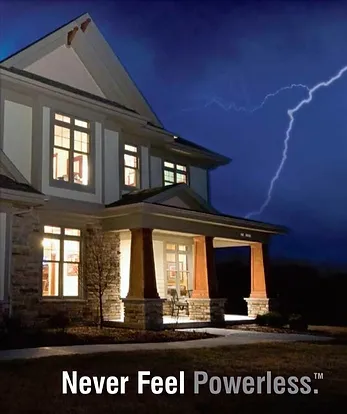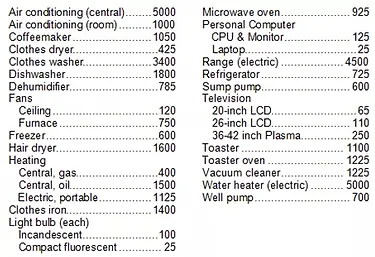When the power goes out, protect the things that matter most with an automatic standby generator. Al-Lectric Emergency Power can walk you through the selection process and explain the differences between the various models and sizes we offer to meet your and your family's needs.

Since Automatic Standby Generators are a huge investment for your home, a crucial step in choosing a generator is to ensure that you get a model that will supply enough power for your home. Depending on the number of appliances you intend to power will determine the correct size generator.
